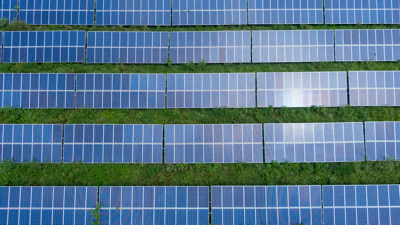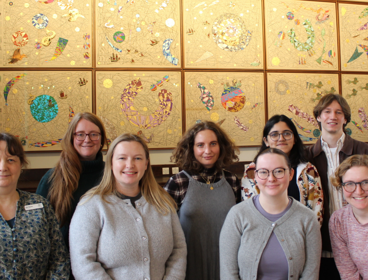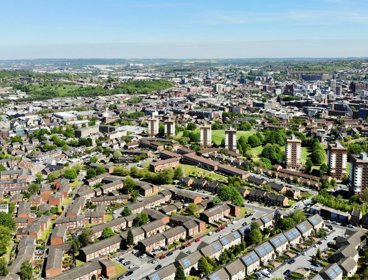Each month we are spotlighting recently published research from one of the Society’s leading international journals: Area, The Geographical Journal, Transactions of the Institute of British Geographers, and Geo: Geography and Environment. This piece, from Geo: Geography and Environment, explores what is needed for an inclusive net zero transition.
The transformational change of net zero
Many of us will have heard the term net zero but what does it mean for our daily lives? How can we achieve a net zero world that works for everyone? Professor Lucie Middlemiss is an interdisciplinary scholar exploring these questions. Since a brief stint as a temp at Greenpeace in the early 2000s, Lucie has been interested in how environmental issues, such as the climate crisis, affect people differently.
The effect of environmental problems is inequality and injustice. [We see this with] the issues around what's going to change under net zero, and what that means for people's everyday lives.Professor Lucie Middlemiss
From eating less meat to walking and cycling more, achieving net zero will require us to significantly transform our lives. In their recent paper, Lucie and her co-authors argue these transformations can be positive. A net zero world could be one where health, wellbeing and community strength are improved, and poverty is reduced. However, this is no small challenge. We first need to understand how people can engage in the steps needed to achieve net zero and what limits their ability to do so.
Net zero is a policy term for the transition we're expecting to happen as we try to reduce the effects humans have on the climate, but also adapt to changes in the climate. This needs transformational change. When we're saying we need to change everything about your house, the way you move around, what work you do, what you do for fun, what you eat, we cannot go into this lightly.Professor Lucie Middlemiss
The importance of place, home, and money
So far, academics and politicians have largely painted one vision of a net zero future. To make this future inclusive, we need to explore what net zero means for different people and different regions. The financial pressures of COVID-19, austerity, and the cost-of-living crisis mean it is particularly important that conversations include low-income households.
Recognising this, Lucie and her team worked with low-income households in Leeds and Newcastle, exploring people’s concerns and opinions on net zero.
We wanted to expose people to net zero plans, and then talk them through what they would need to be able to do this. What do they think about it? Is it something they think is a good idea?Professor Lucie Middlemiss
Three factors shape low-income households’ ability to engage in net zero: place, home, and money. Where the infrastructure of place, such as public transport, is poor quality or unaffordable, car ownership remains crucial to getting around. Equally significant is the condition of people’s homes. In low-quality homes with householders experiencing tight budgets, urgent repairs are prioritised over carbon-lowering adaptations. The availability of money cuts across these issues. For those on lower incomes, putting food on the table today can be more urgent than mitigating the climate crisis of tomorrow.
Your home impacts your ability to participate in net zero transitions. For example, it’s cheap to run an electric car if you have a house with a driveway where you can park your car and you can afford a charging station in your home. People who can afford the infrastructure are putting themselves ahead of people who can't.Professor Lucie Middlemiss
A place-based, people-centred net zero
This research shows that achieving net zero cannot be a one-size-fits-all transformation. Rather, it must be both place-based and people-centred, sensitive to the varied starting points of communities. Politicians and researchers must first understand that different places across the UK require different levels of support.
To understand these different needs, a diversity of people must be included in research and policy planning. Crucially, the interlinked challenges people are facing in their homes and communities, and how these can be tackled through moving towards net zero, must be at the centre of the transition. A net zero transition needs to work for everyone.
We need to prioritise social inclusion in climate policy. This must start with the objective of better lives for people across the board. We need to understand what the challenges are for people now and how we can ease these into the process of net zero. A dog walker in Hull matters just as much as an eco-warrior in Oxford; we all need to be able to see our futures in this.Professor Lucie Middlemiss
Next steps
This paper is part of a wider project exploring the challenges facing families and communities as we transition to a net zero world. Lucie and her team are currently planning research that will quantify the readiness of UK communities for net zero.
This research spotlight article was written by Safia Bailey (Cardiff University).



